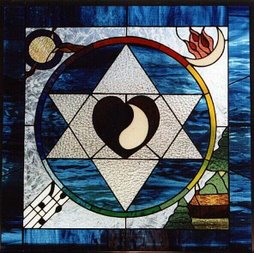
Of whom and of what indeed can I say: 'I know that!' This heart within me I can feel, and I judge that it exists. This world I can touch, and I likewise judge that it exists. There ends all my knowledge, and the rest is construction. For if I try to seize this self of which I feel sure, if I try to define and to summarize it, it is nothing but water slipping through my fingers. I can sketch one by one all the aspects it is able to assume, all those likewise that have been attributed to it, this upbringing, this origin, this ardour or these silences, this nobility or this vileness. But aspects cannot be added up. This very heart which is mine will for ever remain indefinable to me. Between the certainty I have of my existence and the content I try to give to that assurance, the gap will never be filled. For ever I shall be a stranger to myself. In psychology as in logic, there are truths but no truth. Socrates 'know thyself' has as much value as the 'be virtuous' of our confessionals. They reveal a nostalgia at the same time as an ignorance. They are sterile exercises on great subjects. They are legitimate only precisely in so far as they are approximate.
And here are trees and I know their gnarled surface, water and I feel its taste. These scents of grass and stars at night, certain evenings when the heart relaxes – how shall I negate this world whose power and strength I feel? Yet all the knowledge on earth will give me nothing to assure me that this world is mine. You describe it to me and you teach me to classify it. You enumerate its laws and in my thirst for knowledge I admit that they are true. You take apart its mechanism and my hope increases. At the final stage you teach me that this wondrous and multi-coloured universe can be reduced to the atom and that the atom itself can be reduced to the electron. All this is good and I wait for you to continue. But you tell me of an invisible planetary system in which electrons gravitate around a nucleus. You explain this world to me with an image. I realize than that you have been reduced to poetry: I shall never know. Have I the time to become indignant? You have already changed theories. So that science that was to teach me everything ends up in a hypothesis, that lucidity founders in metaphor, that uncertainty is resolved in a work of art. What need had I of so many efforts? The soft lines of these hills and the hand of evening on this troubled heart teach me much more. I have returned to my beginning. I realise that if through science I can seize phenomena and enumerate them, I cannot for all that apprehend the world. Were I to trace its entire relief with my finger, I should not know any more. And you give me the choice between a description that is sure but that teaches me nothing and hypotheses that claim to teach me but that are not sure. A stranger to myself and to the world, armed solely with a thought that negates itself as soon as it asserts, what is this condition in which I can have peace only by refusing to know and to live, in which the appetite for conquest bumps into walls that defy its assaults? To will is to stir up paradoxes. Everything is ordered in such a way as to bring into being that poisoned peace produced by thoughtlessness, lack of heart or fatal renunciations.
Hence the intelligence, too, tells me in its way that this world is absurd. Its contrary, blind reason , may well claim that all is clear. I was waiting for proof and longing for it to be right. But, despite so many pretentious centuries and over the heads of so many eloquent and persuasive men, I know that is false. On this plane, at least, there is no happiness if I cannot know. That universal reason, practical or ethical, that determinism, those categories that explain everything are enough to make a decent man laugh. They are nothing to do with the mind. They negate its profound truth which is to be enchained. In this unintelligible and limited universe, man's fate henceforth assumes its meaning. A horde of irrationals has sprung up and surrounds him until his ultimate end. In his recovered and now studied lucidity, the feeling of the absurd becomes clear and definite. I said that the world is absurd but I was too hasty. This world in itself is not reasonable, that is all that can be said. But what is absurd is the confrontation of the irrational and the wild longing for clarity whose call echoes in the human heart. The absurd depends as much on man as on the world. For the moment it is all that links them together. It binds them one to the other as I can discern clearly in this measureless universe where my adventure takes place. Let us pause here.

